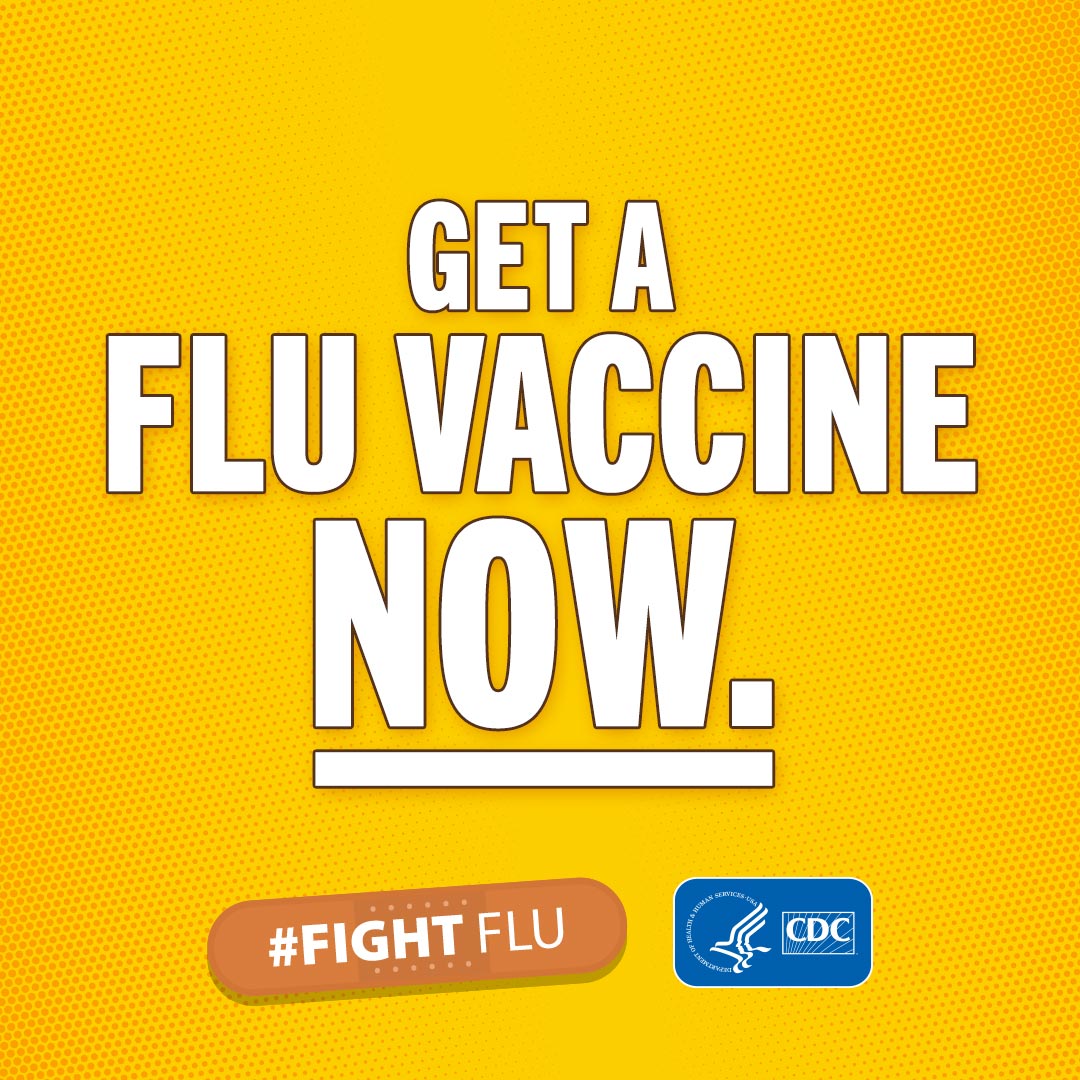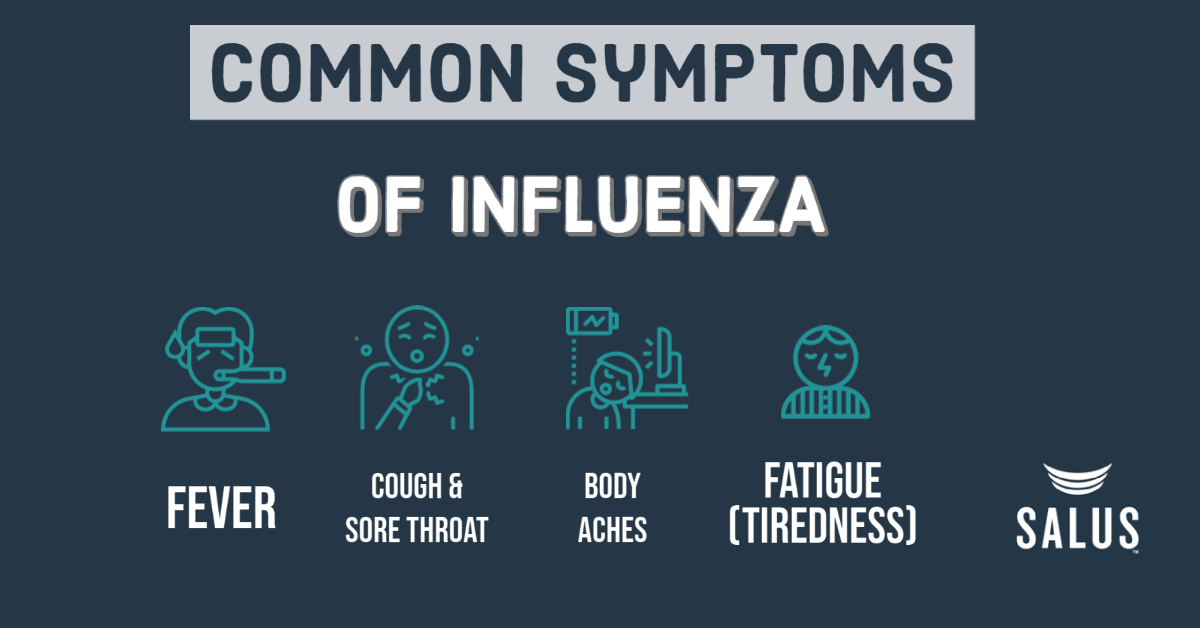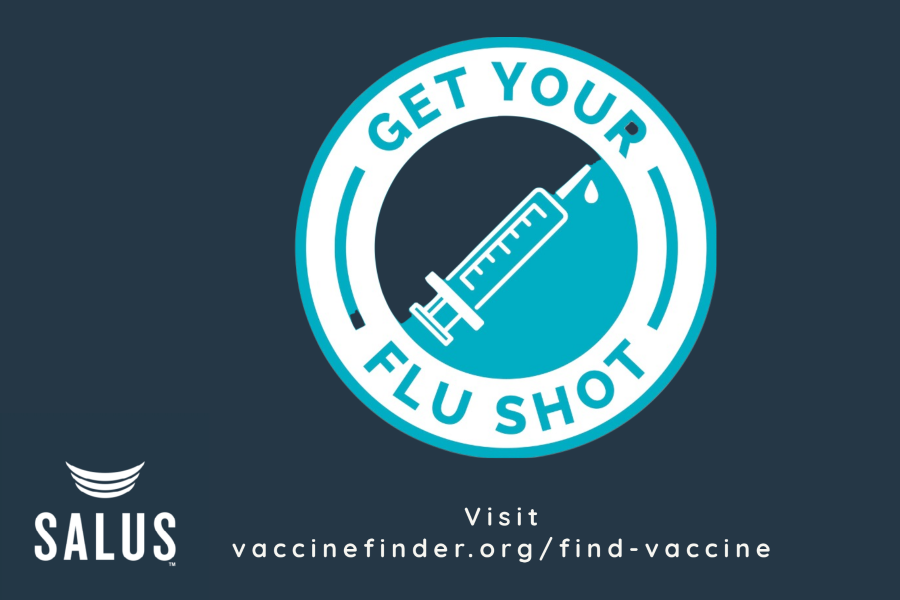
The flu (influenza) is a relatively common and potentially serious disease. The CDC estimates that it has resulted in between 9 million and 45 million illnesses and 140,000 to 810,000 hospitalizations since 2010. Seniors 65 and older are at high risk of developing the most serious complications from the flu. These serious side effects can cause increased dangers when other health conditions are present.
It’s important for everyone to get their annual flu vaccine, but during the 2020-2021 flu season, medical experts say this vaccination is more important than ever. The ongoing COVID-19 pandemic poses some real dangers. Those risk are higher for any person, and especially high risk populations, if you get the flu too. While the flu vaccination cannot prevent COVID-19, it can help to prevent the flu. Since a vaccination for COVID-19 is not currently available, doing what we can to protect ourselves from the flu gives us the best chance at staying healthier and recovering faster.
What is the Senior Flu Vaccine?
While any flu vaccination offers some protection, making the best choice is important for vulnerable seniors. This population needs enhanced protection from the flu because the aging process weakens the immune system, and this increases the risks of serious side effects. The flu also impacts senior health conditions like diabetes, COPD or asthma, compromising safety and quality of life.
The senior influenza vaccination creates a stronger immune response than the regular flu shot, and therefore, it can offer additional protection to at-risk seniors. Two types of flu vaccines have been developed specifically for seniors including the high-dose flu vaccine and the adjuvanted flu vaccine. It’s important to discuss these options with your doctor in order to determine which is best for you.
Effectiveness of a Senior Flu Vaccine
Regardless of whether a doctor recommends the high-dose flu vaccine or the adjuvanted vaccine, it is important to know that this is not a guarantee of 100-percent protection against the flu. However, doctors do believe that vaccinating combined with smart health practices like hand washing, using a tissue when you cough or sneeze, and maintaining distance from people who are sick is the best way to stay safe from the flu.
If a vaccinated senior does contract influenza, the severity and duration of the illness are also often decreased. Researchers have also found that having a flu vaccine can reduce the need for hospitalization among seniors by as much as 40-percent. This further supports both the effectiveness and importance of the vaccine.
Annual Flu Vaccinations

While flu vaccinations are effective in preventing the worst outcomes from the flu, it is important to remember that their protection is not permanent. Unlike some other one-time vaccinations, to stay safe, you have to get a flu vaccination every year. The reason for this is that the strain of flu impacting our communities changes from year to year. Therefore, each year scientists work to create a vaccination that will most effectively address the current and most prevalent strain. Even if your previous vaccination was for the correct strain, the flu is highly adaptive. This means it can change or mutate and remain resilient against past flu vaccinations, so vaccinations must be tweaked in order to keep up with these mutations.
As far as the best time to get a flu vaccination, experts recommend mid-September through the month of October. This is because the immunity conferred by the vaccination wanes over time, particularly for seniors. With a flu season that typically peaks between December and February, it’s important to get your vaccination before the seasons starts but late enough so that protection won’t wane before the season is over.
Where to Get a Senior Flu Vaccination

If you’re ready to get your senior flu vaccination, the best place to start is often at your doctor’s office. Many physicians offer nurse only visits or flu clinics, sometimes even with walk-in hours. Pharmacies, including national chains like Walgreens and CVS, also often provide walk-in hours or appointments for the flu vaccinations. The same is true for health departments across our communities. In most cases, Medicare, MediCal and private insurance offer 100-percent coverage for the flu vaccination, so your out of pocket costs are typically zero. The CDC offers a handy vaccination finder tool that can help you locate a place near you offering flu vaccinations.
Today and every day, Salus reminds you that staying safe and staying healthy is in your hands with one simple step. Protect yourself and your community by getting your flu vaccination today.

